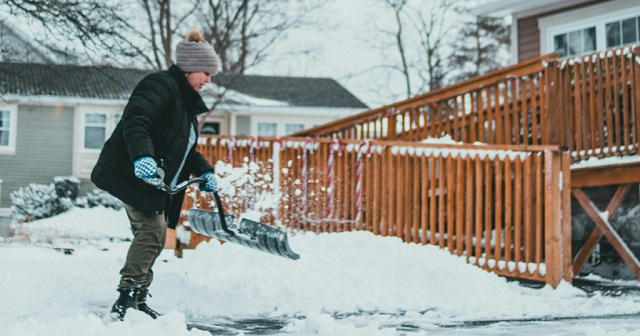Energy
Unpacking the Growing Cost of Home Heating Bills

From EnergyNow.ca
By
Bills are one of life’s certainties, and in Canada, so is winter. When combined, the two add up to a growing affordability crisis across the country.
Lots has been said about the rising cost of daily essentials such as groceries and gas, but another factor weighing heavily on Canadians’ pocketbooks is the cost of heating their homes.
According to data from Statistics Canada:
- 15% of Canadians reduced or had to forgo necessities such as food or medicine for at least one month to pay an energy bill last year. To put that in perspective, based on the number of households there are in Canada today, roughly 2.5 million households had to forgo necessities in 2023.
- 14% of Canadian households kept their home at an unsafe or uncomfortable temperature because of unaffordable heating costs (approximately 2.3 million households).
- High energy prices also caused 10% of Canadian households (approximately 1.7 million households) to be late or unable to pay their energy bills in the past year.
In total, nearly 27% of households (4.5 million households) said it was difficult, or very difficult to meet financial needs in the second quarter of 2023.
These numbers concern us, and we know they are also a big concern for women across Canada who have told us they are adjusting their living conditions to keep costs down.
Engaged women are making trade-offs
Hilary Krauss, a 28-year-old who lives with her partner Mitch in Vancouver, told us that their apartment setting is now fixed at an “affordable” temperature, and they are now bundling up and adding layers of clothing to compensate for lower house temperatures.
Even those who can currently afford their heating bill are considering investing in technology such as solar panels to lower home heating costs over time.
“I want energy security and care about the environment,” said Angela Chung, a Calgary woman who told us she pays $400 per month for her utility bill. “The heating costs for my modest home are exorbitant. If I invest in solar panels, it will have an upfront cost. But I may break even in a decade, saving money in the long run.”
With costs ballooning, and concerns rising about affordability, that drove us to ask what exactly we are paying for in our energy bills.
Taxes are driving up energy costs
The three main components of your heating bill are energy charges, delivery and administration (what you pay utility companies), and various government taxes, including the federal carbon tax.
- Used energy (GJ or KWH)
The gigajoules or kilowatt hours of energy you used in the billing period. (This number can be an estimate or exact number.) - Delivery charges
Delivery charges include fixed and variable costs based on the length of your billing period and natural gas consumption. Both charges are often summed on your heating bill under “Delivery Total.” - Rate riders
Provincial utility commissions approve temporary charges/credits. Rate riders adjust for under/over collection of approved costs. - Transmission charge
A fee for accessing high-voltage wires and towers to transmit power from generation plants to distribution systems. - Federal carbon tax
A federal government tax on natural gas consumption.
These numbers vary across Canada based on different energy and home heating sources, so we collected bills from people in Alberta (Calgary and Sylvan Lake), Ontario (Barrie and Whitby) and British Columbia (Vancouver and Victoria) to compare.
Here’s what we found.
(1) Energy cost varies by province, and are rising every year
Just over half of Canadian households that reported having a primary heating system use a forced air furnace (51%) and one quarter (25%) use electric baseboard heaters, so we focused on these two sources.
Of the bills we looked at, people are paying an average of $135 per month to heat their home. With natural gas, the average winter month costs $160, compared to $110 with electricity.
Canadians are facing increased costs year-over-year for both natural gas (up 23.7% in 2023 over the year before), and electricity (up 1.6% in 2023).
The cost of electricity varies across Canada and can be a challenge to compare because there is a wide variation in market and rate structures.
Some provinces use tiered rates that increase or decrease based on usage, some provinces use flat-rate billing, and Ontario uses time-of-use rates where peak hours are billed at a higher rate than off-peak hours.
According to Statista, the average cost per kilowatt hour (kWh) for electricity in Canada is 19.2 cents, with the Northwest Territories paying the most, and Quebec paying the least per kWh.

(2) The carbon tax is nearly doubling home heating costs
The bills we examined show that the carbon tax accounts for 30% of heating costs for those who heat their homes with forced air furnaces that use natural gas.
In Alberta, for example, it costs about $1.80 per gigajoule (GJ) of natural gas, and an additional $3.33 per GJ in carbon tax. This means the tax is greater than the actual energy cost, nearly doubling the cost of a monthly bill.
For every $1 an Ontarian spends on natural gas, they pay an extra $1.66 on the carbon tax, according to the bills we examined. Again, the cost of the carbon tax is greater than the cost of energy used.

In Eastern Canada where home heating oil is the most used heating source, the carbon tax has been exempted (a fairness issue we’ve already explored in depth) so we have excluded it from this analysis.
Carbon tax increases will raise cost further
The federal carbon tax is set to increase by 23% on April 1, 2024, and it will rise every year until it nearly triples by 2030 over today’s rate.
The federal carbon tax was intended to incentivize people to consume less oil and gas, but we know from our national research that more than half of engaged women (52%) feel it isn’t working because it isn’t changing behaviour. It’s also putting undue pressure on remote and rural communities where alternative energy sources are not available.
Home heating is a necessity, not a luxury, and many Canadians do not have options on how they heat their home. With 46% of engaged women across Canada telling us they are concerned about energy affordability, it begs the question: Do you think what you pay for home heating is fair?
Let us know what you think about rising heating costs and these findings, and reach out to tell us how you’re managing the rising cost of living.
Business
Bill Gates walks away from the climate cult

Billionaire Bill Gates — long one of the loudest voices warning of climate catastrophe — now says the world has bigger problems to worry about. In a 17-page memo released Tuesday, the Microsoft co-founder called for a “strategic pivot” away from the obsessive focus on reducing global temperatures, urging leaders instead to prioritize fighting poverty and eradicating disease in the developing world. “Climate change is a serious problem, but it’s not the end of humanity,” Gates wrote.
Gates, 70, argued that global leaders have lost perspective by treating climate change as an existential crisis while millions continue to suffer from preventable diseases like malaria. “If I had to choose between eradicating malaria and preventing a tenth of a degree of warming, I’d let the temperature go up 0.1 degree,” he told reporters ahead of next month’s U.N. climate conference in Brazil. “People don’t understand the suffering that exists today.”
For decades, Gates has positioned himself as a leading advocate for global climate initiatives, investing billions in green energy projects and warning of the dangers of rising emissions. Yet his latest comments mark a striking reversal — and a rare admission that the world’s climate panic may have gone too far. “If you think climate is not important, you won’t agree with the memo,” Gates told journalists. “If you think climate is the only cause and apocalyptic, you won’t agree with the memo. It’s a pragmatic view from someone trying to maximize the money and innovation that helps poor countries.”
The billionaire’s change in tone is sure to raise eyebrows ahead of the U.N. conference, where climate activists plan to push for new emissions targets and wealth transfers from developed nations. Critics have long accused Gates and other elites of hypocrisy for lecturing the public about fossil fuels while traveling the globe on private jets. Now, Gates himself appears to be distancing from the doomsday rhetoric he once helped spread, effectively admitting that humanity faces more immediate moral imperatives than the weather.
(AP Photo/Alex Brandon)
Stunning Climate Change pivot from Bill Gates. Poverty and disease should be top concern.
Business
Trans Mountain executive says it’s time to fix the system, expand access, and think like a nation builder

Mike Davies calls for ambition and reform to build a stronger Canada
A shift in ambition
A year after the Trans Mountain Expansion Project came into service, Mike Davies, President and Chief Operating Officer at Trans Mountain, told the B.C. Business Summit 2025 that the project’s success should mark the beginning of a new national mindset — one defined by ambition, reform, and nation building.
“It took fifteen years to get this version of the project built,” Davies said. “During that time, Canadian producers lost about $50 billion in value because they were selling into a discounted market. We have some of the world’s largest reserves of oil and gas, but we can only trade with one other country. That’s unusual.”
With the expansion now in operation, that imbalance is shifting. “The differential on Canadian oil has narrowed by about $13 billion,” he said. “That’s value that used to be extracted by the United States and now stays in Canada — supporting healthcare, reconciliation, and energy transformation. About $5 billion of that is in royalties and taxes. It’s meaningful for us as a society.”
Davies rejected the notion that Trans Mountain was a public subsidy. “The federal government lent its balance sheet so that nation-building infrastructure could get built,” he said. “In our first full year of operation, we’ll return more than $1.3 billion to the federal government, rising toward $2 billion annually as cleanup work wraps up.”
At the Westridge Marine Terminal, shipments have increased from one tanker a week to nearly one a day, with more than half heading to Asia. “California remains an important market,” Davies said, “but diversification is finally happening — and it’s vital to our long-term prosperity.”
Fixing the system to move forward
Davies said this moment of success should prompt a broader rethinking of how Canada approaches resource development. “We’re positioned to take advantage of this moment,” he said. “Public attitudes are shifting. Canadians increasingly recognize that our natural resource advantages are a strength, not a liability. The question now is whether governments can seize it — and whether we’ll see that reflected in policy.”
He called for “deep, long-term reform” to restore scalability and investment confidence. “Linear infrastructure like pipelines requires billions in at-risk capital before a single certificate is issued,” he said. “Canada has a process for everything — we’re a responsible country — but it doesn’t scale for nation-building projects.”
Regulatory reform, he added, must go hand in hand with advancing economic reconciliation. “The challenge of our generation is shifting Indigenous communities from dependence to participation,” he said. “That means real ownership, partnership, and revenue opportunities.”
Davies urged renewed cooperation between Alberta and British Columbia, calling for “interprovincial harmony” on West Coast access. “I’d like to see Alberta see B.C. as part of its constituency,” he said. “And I’d like to see B.C. recognize the need for access.”
He summarized the path forward in plain terms: “We need to stem the exit of capital, create an environment that attracts investment, simplify approvals to one major process, and move decisions from the courts to clear legislation. If we do that, we can finally move from being a market hostage to being a competitor — and a nation builder.”
-

 Business1 day ago
Business1 day agoTrans Mountain executive says it’s time to fix the system, expand access, and think like a nation builder
-

 Alberta2 days ago
Alberta2 days agoPremier Smith sending teachers back to school and setting up classroom complexity task force
-

 Addictions1 day ago
Addictions1 day agoThe Shaky Science Behind Harm Reduction and Pediatric Gender Medicine
-

 Alberta2 days ago
Alberta2 days agoThousands of Albertans march to demand independence from Canada
-

 Crime2 days ago
Crime2 days agoSuspect caught trying to flee France after $100 million Louvre jewel robbery
-

 Business1 day ago
Business1 day agoClean energy transition price tag over $150 billion and climbing, with very little to show for it
-

 International20 hours ago
International20 hours agoStrongest hurricane in 174 years makes landfall in Jamaica
-

 Business1 day ago
Business1 day agoFlying saucers, crystal paperweights and branded apples: inside the feds’ promotional merch splurge









